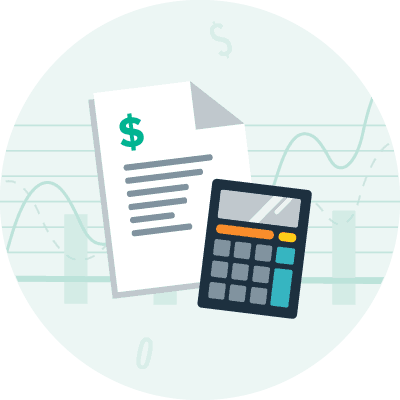What are Fixed Costs?
REtipster does not provide tax, investment, or financial advice. Always seek the help of a licensed financial professional before taking action.
Shortcuts
- Fixed costs are costs that remain unchanged regardless of the production volume within a specific time frame.
- Fixed costs in manufacturing remain the same, like building and equipment leases, regardless of the level of production.
- In real estate, fixed costs are divided into acquisition costs, holding costs, and selling costs.
- Knowing your fixed costs is crucial for investment success, as miscalculating these can lead to losses.
Fixed Costs Explained
In accounting terms, fixed costs are any expenses a business has to pay that don’t increase or decrease based on production.
For example, a manufacturer has to pay the same building and equipment leases for his factory whether it is running three shifts a day producing widgets or it is shut down for a month due to a worker strike. The “fixed” monthly lease payment is an example of a fixed cost.
Different businesses have different fixed costs and they can be direct (such as property taxes) or indirect (such as depreciation), long-term (building lease), or short-term (equipment lease). Fixed costs are usually established by either a contractual agreement or statute.
What Are Fixed Costs in Real Estate?
In real estate, there are three categories of fixed costs:
- Acquisition costs
- Holding costs
- Selling costs
The categories are essentially the same whether you are investing in fix-and-flips or buy-and-hold properties. The expenses, which include various commissions, fees, and financing, vary depending on the property.
Fixed Acquisition Costs
These are any costs paid by the buyer prior to and during closing. Some typical fixed costs in purchasing a property include:
- Inspections: If the property is financed by a bank or commercial lender, there will usually be mandatory inspections. If the property is a cash sale or seller-financed, it’s still in the buyer’s interest to do due diligence with a home inspection.
- Survey: As with inspections, lenders typically require a survey and it is part of the buyer’s due diligence in other financing situations.
- Title Insurance: This is essential to protect the buyer in case of ownership challenges.
- Lender’s Fees: Lenders may charge loan origination fees, application fees, credit report fees, appraisal fees, underwriting fees, document fees, rate lock fees—the buyer’s fixed costs are all the front-end fees the lender charges to make the loan.
- Closing Costs: These may include attorney fees, recording fees, state taxes, document fees, and any other fees assessed by the government to close a real estate transaction.
Fixed Holding Costs
Holding costs (also known as carrying costs) are all the expenses paid by the investor during the time they hold the property. These will vary depending on whether you are planning to flip or hold the property and may include:
- Loan/mortgage payments: If you are flipping the property, a good rule of thumb is to plan on six months of loan repayment.
- Property Taxes: You’ll usually pay a full year of property taxes at closing even if you plan to flip the property.
- Property Insurance: You’ll carry either vacant home or rental insurance on the property during the time it’s held.
- Utilities: If you’re rehabbing a property, you’ll pay all the utilities during the time it’s held. For buy-and-hold, the tenants may pay some of the utilities.
- Homeowners’ Association (HOA) Fees: The owner generally pays these fees, even if there is a tenant.
- Management Fees: These generally run between 8% and 12% of collected rents for buy-and-hold properties.
- Marketing Costs: These are usually ongoing, fixed costs for short-term rentals and Airbnbs.
Fixed Selling Costs
These are costs paid by the seller prior to and during closing the sale of the property. They may include:
- Multiple listing service (MLS) fees
- Open house fees
- Home warranty
- Real estate commissions
- Seller’s closing costs
Ultimately, it’s important to know your fixed costs for every investment you make. Especially when the margin for error is slim in a prospective deal, overlooking or underestimating your fixed costs can mean the difference between turning a profit and losing money.
Reviewed by Ryan Cason of Tax Sentry




